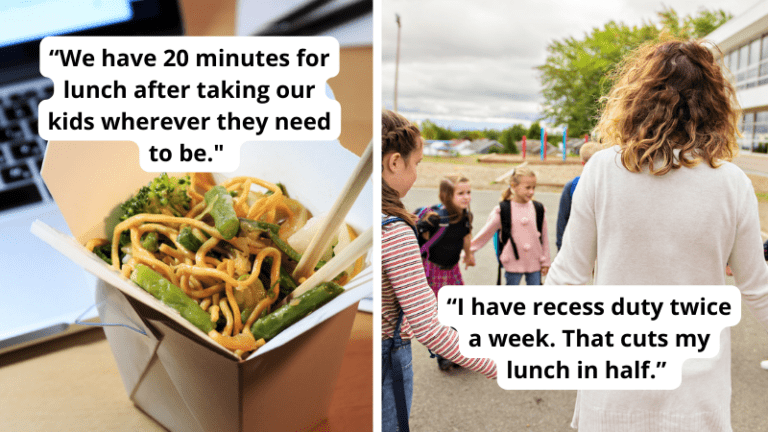How do we explain to someone outside of the profession what teaching is really like? It’s a daily juggle of a hundred moving parts and a crazy exhausting gig, to be sure. So what do we do when friends or loved ones feel neglected or are critical of our after-school availability or energy level?
Recently, ST wrote to our WeAreTeachers HELPLINE! with such a question: “As teachers, we handle challenges and compromises all day, every day. How do you deal when friends don’t understand that these challenges and compromises sometimes take priority over our personal lives? Teaching is not a job you just clock in and out of. I feel like the teaching career is so misunderstood.”
Our teacher friends spoke up and offered these words of wisdom:
Give your friends a chance to see your side.
Rebecca Bolton suggests having an honest dialogue with friends to help them understand where you’re coming from and give them a chance to be supportive. Lindsey Steele agrees,”Ask your friends to listen to your struggle without offering advice or negativity. Best friends will just listen when you ask them to.”
Or, take a page from Kathleen Morlan’s book. She once kept a diary of a day in her teaching life, time-stamping her activities in five-minute increments, and shared it with a friend. “Her first reaction,” Morlan tells us, “was ‘you waited that long to pee?’ And her second, ‘Teachers are actors with a new script every class period!'”
Better yet, invite your friend to come in and shadow you for one day as a classroom volunteer. There’s nothing more effective for compassion-building than walking a mile in someone else’s shoes. Once they feel the energy of a classroom, see how many demands are made every minute of the day and watch you juggle your workload, they may finally get it.
Be choosy with your friends.
“I have amazing friends,” shares Sarah Mattie. “The ones who can’t handle that I’m not always available stop being in my life. It’s not reasonable to expect people to be at your service all the time. Sure, I do drop everything when a friend is in crisis. It’s what you do. But, if a friend is complaining about me not wanting to go to a concert at 10 pm on a Wednesday and refuses to understand why, that’s not someone I need.”
Redefine your boundaries.
“If friends aren’t willing to cut you some slack,” agrees Zoe W., “it’s time to adjust your boundaries, and that may mean ending or cutting way back on the friendship. Some friends may just need to be a winter/spring/summer break friend.”
Adjust your priorities.
Perhaps in the end, it may take some soul-searching to find the answer. After all, it is possible that your friend may actually be offering you some valuable insight. As one new teacher coach puts it, if you give everything you have to your job, you will have nothing left for yourself—including nurturing relationships, which we all need. And if you have nothing left, you’ll burn out before you even start.
If that is the case, take the advice of James Leatherman, who advises, “Work to live, not the other way around. Give 100% to your students while you are there and then leave your work at work when you go home.” Only you can decide the right balance between friends and work that makes sense for your life.
What tips do you have for teachers when friends don’t understand teaching? Add your insight to the comments below.


